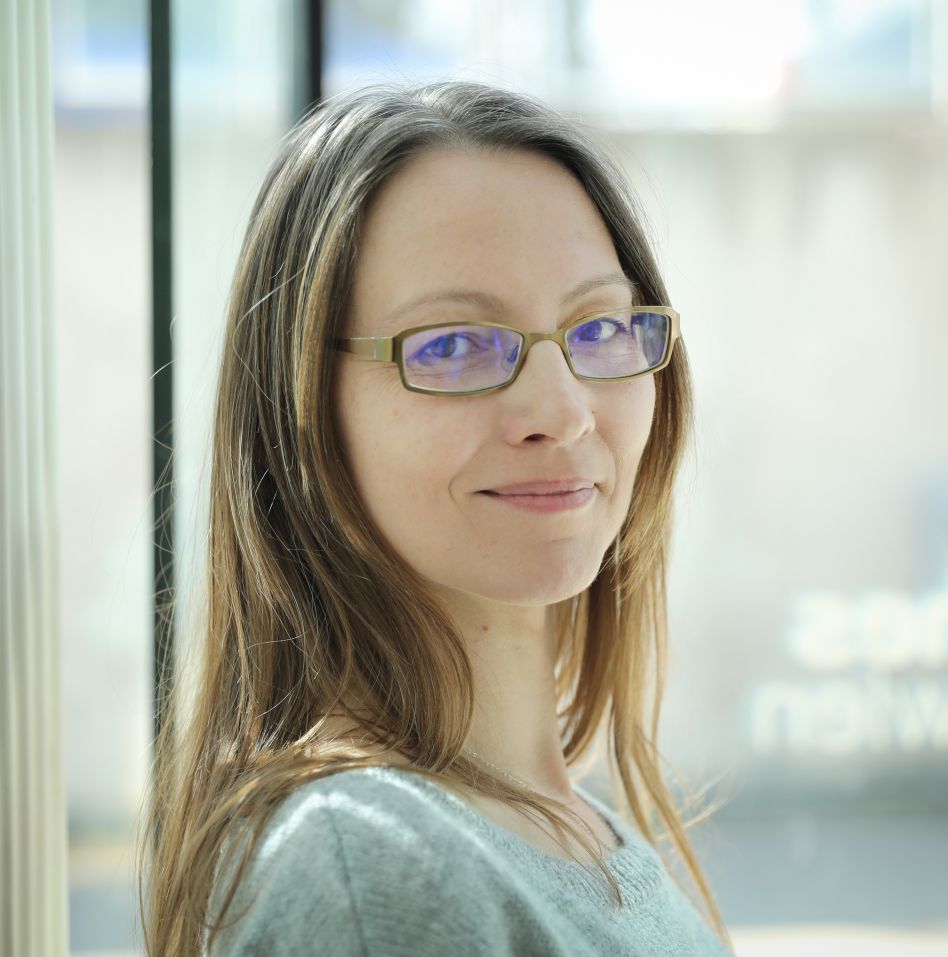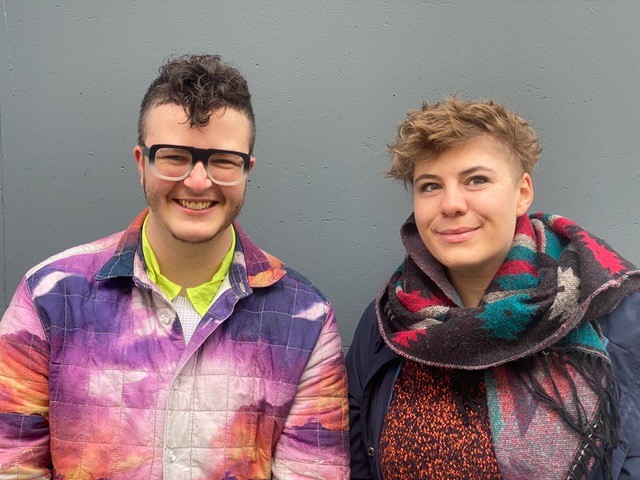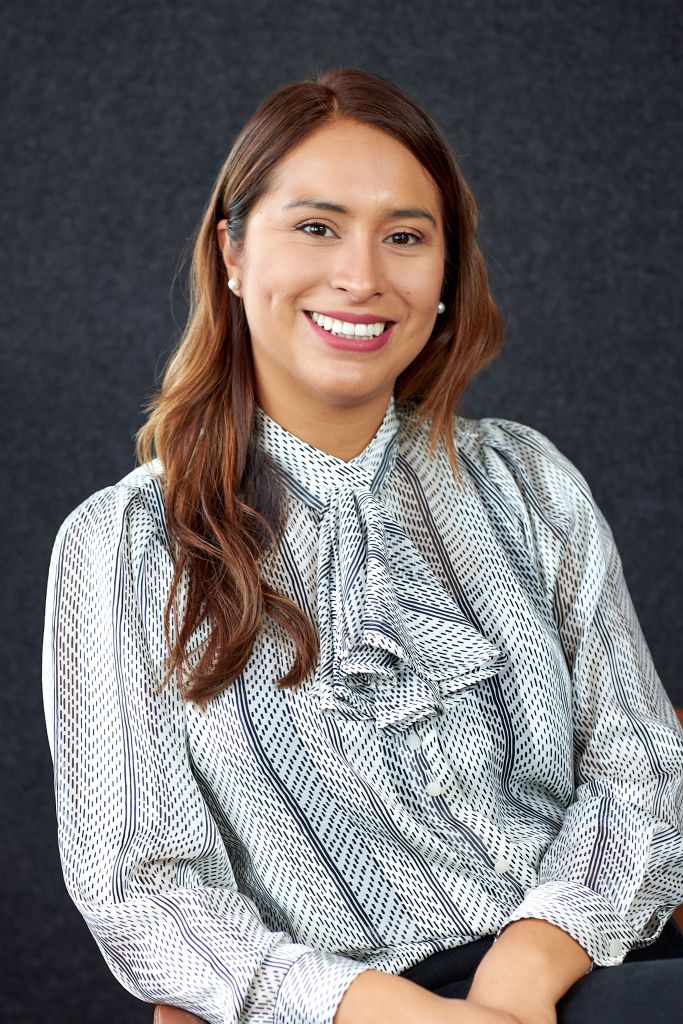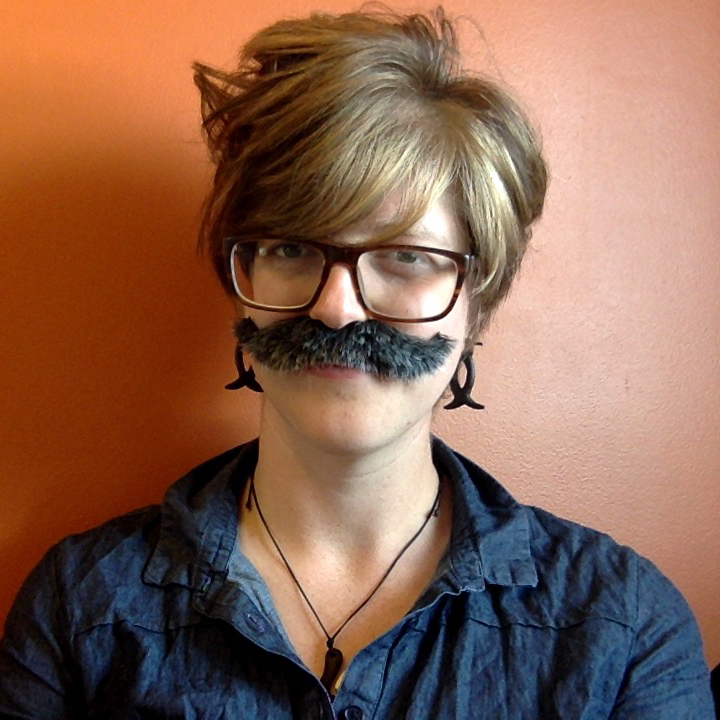The DCI Fellowship has become a highly competitive Fellowship sought out by academics around the world at the intersection of digital curation, data-intensive research and sustainability. This year's Fellowship call was met by 75 applications, out of which 7 excellent applications were shortlisted. For more news on this year's DCI Fellowship, see this post.
Given the overwhelming interest, we are thrilled to introduce the Associate Fellowship program at the DCI, a new format that allows us to widen our support. We are especially delighted to announce this year's Associate Fellows at the DCI.

Dr. Doris Allhutter
Dr. Doris Allhutter (she/her) is a tenured senior scientist at the Institute of Technology Assessment at the Austrian Academy of Sciences. She teaches Responsible Research and Innovation and Responsible Robotics at the Vienna University of Technology, ‘Gender and Social Aspects of IT’ at JKU Linz , as well as in the STS Master Program at the University of Vienna.
Doris works with critical computing communities from an STS perspective. Her research studies how social inequality and ideologies of difference co-emerge with information infrastructures and socio- technical systems. She uses ethnography and deconstruction to trace the implicit normativity of computing practices and study how these practices are entrenched in societal power relations.
In her view, interdisciplinary research in critical fields of computing implicitly negotiates different normative perspectives that are ingrained in the respective epistemic approaches. As researchers, teachers and designers who care to co-create livable futures we need to question epistemic norms and values and the way they are entangled with power relations. To move beyond merely translating between disciplines, we need to reconfigure the concepts and methods we are working with. The Fellowship project focuses on establishing a political mode of computing in the field of requirements engineering. With mind scripting, she hopes, we will make a meaningful step in this direction in critical requirements engineering.

MELT: Loren Britton and Isabel Paehr
As MELT, Loren Britton and Isabel Paehr are arts-design researchers who work with games, tech and radical pedagogy. Investigating the political & material conditions of tech infrastructures, they re-distribute agency in socio-technological systems with the methods of queer play, unlearning and leaking. MELT boils up insights from chemistry, crip technoscience and trans*feminism to study and set in motion transformative material-discursive processes. MELT crumbles structures, unbounds materials, dissolves technology and makes collectivities through formats like video artworks and workshops. MELT has been influenced by (melting) Ice, Freezers, Software, Signal, moving too fast/slow, Wendy Hui Kyong Chun, Denise Ferreira Da Silva, Digital Materialism, Decolonial thinking, Gifs, Climate Protests, Anti-Racism and Dancing.
Data for…? is a speculative design project that is set up with the intention of researching and inventing sustainable data practices for trans* and disabled people. Based on the multiple and varied violences that trans* and disabled people face regularly in current socio-technical systems (Crawford 2016; Wachter-Boatcher 2017; Benjamin 2019; Reid & Curry 2019), this research flips the script and asks how we can work towards imagining ways to affirm life for disabled and trans*gender people as thriving (cf. Abolition and Disability Justice Collective). MELT find that imaginaries of what to do with data that are not based on the continued oppression of marginalized people are urgently needed. Part of this research will be a workshop in early 2022.

Dr. Victoria Palacin
Dr. Victoria Palacin (she/her) is a researcher and technologist specialized in digital participation for sustainable development. Her current research focuses on understanding the ways in which software engineers’ ideologies manifest in digital democracy tools. This work is being done through the systematic deconstruction of digital platforms for public participation, and through participatory interventions with communities.
Victoria argues that technologies are reconfiguring what being a citizen means. On the internet, we are all “users”, and users exist as long as the tool they use, exists. Online participation then becomes no longer a right, but a mere interaction. This is creating an imaginary relationship between us and our democracies, a relationship driven by the mental models of the technologists in charge.
Victoria is a postdoctoral scholar at the University of Helsinki and was the DCI fellow during 2020. During this year Victoria explored pseudo-participation in public infrastructures such as participatory budgeting (upcoming article), and she studied the ways in which people collaborated in distributed pandemic hackathons across Hispanic American countries. She also hosted 5 invited speakers to discuss topics related to civic experimentation, the politics of online democracies, and the social impacts of algorithms.
In 2021, the work on digital pseudo-participation continues, with the development of instruments to tackle pseudo-participation in public services.
Victoria tweets at @vpalacin, and you can read more about her at www.mavipasi.com

Vanessa Thomas, PhD
Vanessa Thomas, PhD, (they/them, he/him, she/her) is an anti-disciplinarian queer settler with training in computer science, design, management studies, feminist methodologies, and environmental studies, amongst many other fields. Vanessa currently works full-time for the Government of Canada, teaches part-time at Carleton University, and supervises graduate students part-time through HyperIsland. Vanessa’s research will build on the TechOtherwise platform’s Defund Big Tech report to explore how governments and policymakers could take active steps in the directions outlined there. To help inspire their peers in government, Vanessa will draw on their expertise in speculative design and encourage policymakers to reimagine their digital environment(s). Vanessa will undertake this work remotely from their current residence on the unceded territories of the Coast Salish peoples—Sḵwx̱wú7mesh (Squamish), Stó:lō and Səl̓ílwətaʔ/Selilwitulh (Tsleil-Waututh) and xʷməθkʷəy̓əm (Musqueam) Nation—in what is currently known as Canada.
